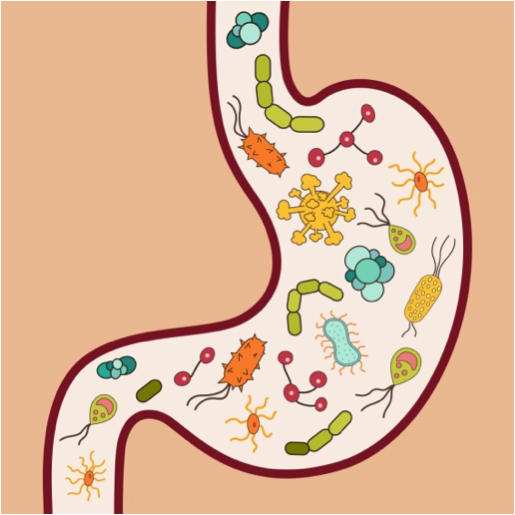This post is also available in Dutch.
In recent years, scientists have identified depression as an important risk factor for heart disease, the number one cause of death worldwide. You may be wondering how depression, a condition we view as emotional, can affect something as physical as the heart. Well here’s how.
 Microbiota in the gut. Image Source: iStockphoto.com
Microbiota in the gut. Image Source: iStockphoto.com
It all comes down to inflammation. Both heart disease and depression are linked to inflammation. Depressed patients tend to exhibit such high levels of inflammation that many researchers refer to depression as an “inflammatory state.” Indeed, researchers have observed that rodents injected with inflammatory factors act as if they are depressed.
The leaky gut
But what causes depressed patients to experience this inflammation in the first place? According to a recent theory, called the “leaky gut” hypothesis, bacteria in the gut are responsible (for more background on gut bacteria and the brain, read this). Normally, the gut wall is secure so that bacteria cannot venture into the rest of your body. Depressed people, however, often suffer from chronic stress. Although in small doses stress hormones are harmless, chronic exposure to stress hormones can signal for the intestinal barrier to become “leaky.” Once this barrier is no longer secure, parts of bacterial cells can enter the body and trigger an immune response, like inflammation. In fact, researchers have found detectable levels of bacterial molecules circulating in the blood of depressed individuals, but not healthy individuals
Serotonin and depression
So how exactly does inflammation lead to depression? Current research suggests that the ability of inflammatory molecules to interact with serotonin may be the key. Serotonin is a neurotransmitter that regulates mood, and therefore most antidepressant medications operate by increasing serotonin levels in the brain. Inflammatory molecules can activate an enzyme that depletes the store of molecules from which serotonin is made. In short, high levels of inflammation cause low levels of serotonin in the brain, which can result in depression.
Battling Inflammation
Armed with this knowledge, researchers have suggested several methods of reducing inflammation in order to combat depression. Anti-inflammatory drugs have demonstrated promising antidepressant effects in clinical trials. Another treatment option is probiotics because they can reduce levels of stress hormones in humans and, in rats, even restore the integrity of the intestinal barrier after exposure to stress. Dietary changes may also improve depressive symptoms. Scientists believe that the overconsumption of refined vegetable oils in Western diets may cause inflammation. However, foods such as fish, walnuts and flaxseed, which contain the polyunsaturated fat ?-3, have an anti-inflammatory effect. Interestingly, studies have shown that the greater one’s intake of fish, the lower one’s risk for depression. Many patients, even those who are unresponsive to antidepressants, experience an improvement in depressive symptoms after taking ?-3 supplements. Thus current research suggests that targeting inflammation may be the key to overcoming depression.
More Information
Article on mind-altering microorganisms
Article on depressive symptoms, fatty acids and inflammation
Article on the effect of anti-inflammatory treatment on depression
This blog was written by Juliette.
